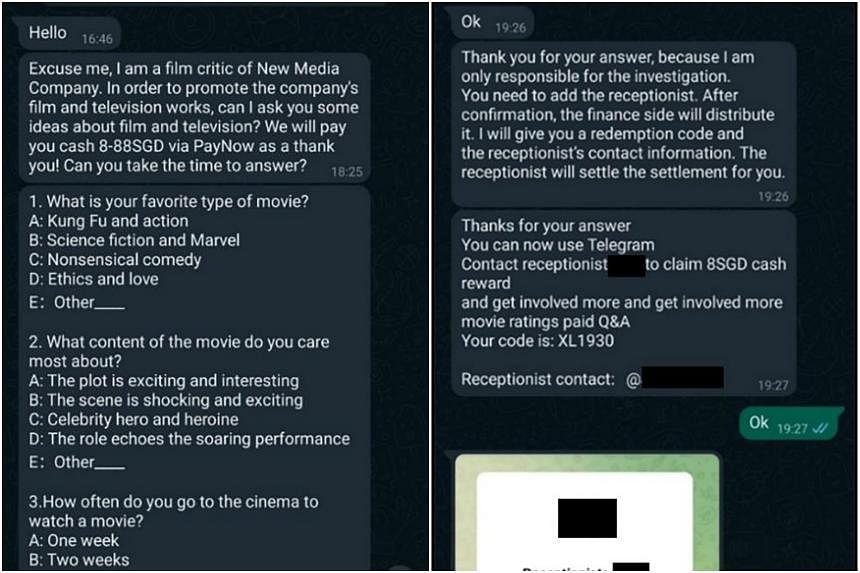
SINGAPORE – At least 3,066 victims lost $45.7 million or more after they were targeted in job scams between Oct 1, 2023, and Jan 31, the police said on Feb 20.
Scammers approached their victims through dating apps, messaging platforms or social media to befriend them or offer jobs, before asking them to perform tasks for a commission.
In the case of job scams involving tasks to generate traction on social media, the victims were added to WhatsApp or Telegram chat groups by scammers who promised them easy and profitable online jobs.
The scammers claimed that they represented online communications companies, marketing companies or even TikTok.
The victims were asked to follow TikTok or Instagram accounts, subscribe to channels or to like videos on YouTube, posts on Trip.com or songs on Spotify.
After completing these tasks, they were given a small commission.
Convinced they could earn more, the scam victims accepted further tasks and, in some cases, were given fake employment contracts.
In another scam variant, those targeted received WhatsApp or Telegram messages offering small commissions for completing surveys.
The victims were asked to contact other WhatsApp or Telegram users, or join chat groups where tasks including those to generate traction on social media or transfer money for fake investments would be discussed.
To perform these new tasks, the victims had to open accounts on scam websites and transfer money to bank accounts or cryptocurrency wallets provided by the scammers.
They realised they had been scammed when their website accounts showed a negative balance, and they were told to pay additional funds to upgrade their accounts, or when they could not withdraw their earnings.
People were also scammed in a variant involving affiliate marketing, with scammers approaching and befriending victims on messaging platforms, dating apps or social media platforms such as Facebook and Instagram.
Those targeted were offered a commission to help boost products on e-commerce platforms.
Subsequently, they were referred to other WhatsApp or Telegram users, who instructed them to take screenshots of certain products on e-commerce websites and make payments to specified bank accounts or PayNow numbers before they could get their refunds and commissions.
This process was repeated, beginning with low-cost items before progressing to expensive items.